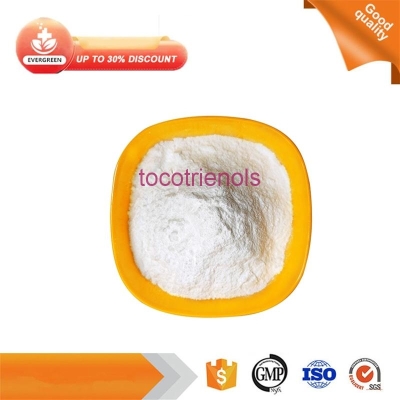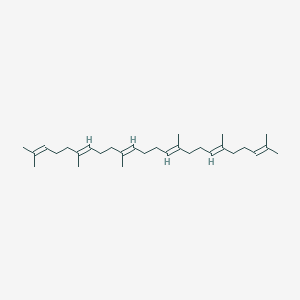-
Categories
-
Pharmaceutical Intermediates
-
Active Pharmaceutical Ingredients
-
Food Additives
- Industrial Coatings
- Agrochemicals
- Dyes and Pigments
- Surfactant
- Flavors and Fragrances
- Chemical Reagents
- Catalyst and Auxiliary
- Natural Products
- Inorganic Chemistry
-
Organic Chemistry
-
Biochemical Engineering
- Analytical Chemistry
- Cosmetic Ingredient
-
Pharmaceutical Intermediates
Promotion
ECHEMI Mall
Wholesale
Weekly Price
Exhibition
News
-
Trade Service
Medical Network, July 27, reported that acute lymphoblastic leukemia (ALL) is the most common type of cancer in children and adolescents.
Chemotherapy is the main treatment for childhood ALL
.
Chemotherapy is the main treatment for childhood ALL
.
The reporter learned on the 26th that medical experts from China, the United States, and Germany have achieved new results in joint research
.
They found that the chemotherapeutic drug mercaptopurine may directly induce drug resistance gene mutations in related patients, making tumor cells resistant to a variety of other chemotherapeutic drugs, leading to recurrence of leukemia
.
.
They found that the chemotherapeutic drug mercaptopurine may directly induce drug resistance gene mutations in related patients, making tumor cells resistant to a variety of other chemotherapeutic drugs, leading to recurrence of leukemia
.
The research results were published online in the international authoritative journal "Nature Cancer"
.
According to this new result, in the future, in the treatment process, doctors should monitor the bone marrow, detect related mutations as soon as possible to guide clinical medication, screen high-risk patients who may benefit from emerging therapies such as CAR-T, and improve the accuracy of leukemia treatment.
It has a positive meaning
.
.
According to this new result, in the future, in the treatment process, doctors should monitor the bone marrow, detect related mutations as soon as possible to guide clinical medication, screen high-risk patients who may benefit from emerging therapies such as CAR-T, and improve the accuracy of leukemia treatment.
It has a positive meaning
.
According to Zhou Binbing’s team at the National Health Commission ’s Children’s Hematological Oncology Key Laboratory, although the five-year survival rate of children with ALL at this stage is close to 80%-90%, 15%-20% of children will still relapse, and the cure rate after relapse Only 20%~50%
.
Recurrence of drug resistance is an important reason for the failure of the treatment of childhood ALL and the death of patients.
Deciphering the mechanism of recurrence of drug resistance in children with leukemia and optimizing the treatment plan have become the focus of clinical and scientific research in this field
.
.
Recurrence of drug resistance is an important reason for the failure of the treatment of childhood ALL and the death of patients.
Deciphering the mechanism of recurrence of drug resistance in children with leukemia and optimizing the treatment plan have become the focus of clinical and scientific research in this field
.
Zhou Binbing told reporters that it was not clear how leukemia cells acquire drug-resistant gene mutations.
There are two mainstream views: First, drug-resistant gene mutations already exist in the form of tiny clones when cancer occurs, and during chemotherapy.
Enriched by drug screening; second, drug resistance gene mutations do not exist when cancer occurs, but are regained during treatment
.
There are two mainstream views: First, drug-resistant gene mutations already exist in the form of tiny clones when cancer occurs, and during chemotherapy.
Enriched by drug screening; second, drug resistance gene mutations do not exist when cancer occurs, but are regained during treatment
.
National Children’s Medical Center (Shanghai)/Shanghai Children’s Medical Center Affiliated to Shanghai Jiaotong University School of Medicine, Department of Pharmacology and Chemical Biology, Shanghai Jiaotong University School of Medicine, Zhou Binbing's team at the National Health Commission’s Children’s Hematological Oncology Key Laboratory, St.
Sude Children’s The research conducted by the Jinghui Zhang team at the research hospital and the Renate Kirschner-Schwabe team at the Charité University Hospital in Germany comprehensively analyzed samples of many ALL patients from China, the United States, and Germany
.
Sude Children’s The research conducted by the Jinghui Zhang team at the research hospital and the Renate Kirschner-Schwabe team at the Charité University Hospital in Germany comprehensively analyzed samples of many ALL patients from China, the United States, and Germany
.
Researchers discovered the unique mercaptopurine mutation signature of relapsed ALL, which reflects the course of related genetic changes during chemotherapy
.
The researchers further discovered that mismatch repair defects significantly increase the rate of gene mutations induced by mercaptopurine
.
It is reported that the results of the study provide experimental evidence that chemotherapy drugs may directly induce drug-resistant mutations
.
.
The researchers further discovered that mismatch repair defects significantly increase the rate of gene mutations induced by mercaptopurine
.
It is reported that the results of the study provide experimental evidence that chemotherapy drugs may directly induce drug-resistant mutations
.
During the interview, the reporter learned that the results of this research have made important contributions to the clonal evolution mechanism of leukemia
.
The new findings of the research team have changed people's understanding and cognition of the source of drug-resistant mutations
.
The results of the study show that ALL patients with mismatch repair defects (approximately 8% of relapsed patients) will face a huge risk of mercaptopurine medication, and treatment strategies should be changed
.
(Finish)
.
The new findings of the research team have changed people's understanding and cognition of the source of drug-resistant mutations
.
The results of the study show that ALL patients with mismatch repair defects (approximately 8% of relapsed patients) will face a huge risk of mercaptopurine medication, and treatment strategies should be changed
.
(Finish)
Medical Network, July 27, reported that acute lymphoblastic leukemia (ALL) is the most common type of cancer in children and adolescents.
Chemotherapy is the main treatment for childhood ALL
.
Chemotherapy is the main treatment for childhood ALL
.
The reporter learned on the 26th that medical experts from China, the United States, and Germany have achieved new results in joint research
.
They found that the chemotherapeutic drug mercaptopurine may directly induce drug resistance gene mutations in related patients, making tumor cells resistant to a variety of other chemotherapeutic drugs, leading to recurrence of leukemia
.
.
They found that the chemotherapeutic drug mercaptopurine may directly induce drug resistance gene mutations in related patients, making tumor cells resistant to a variety of other chemotherapeutic drugs, leading to recurrence of leukemia
.
The research results were published online in the international authoritative journal "Nature Cancer"
.
According to this new result, in the future, in the treatment process, doctors should monitor the bone marrow, detect related mutations as soon as possible to guide clinical medication, screen high-risk patients who may benefit from emerging therapies such as CAR-T, and improve the accuracy of leukemia treatment.
It has a positive meaning
.
.
According to this new result, in the future, in the treatment process, doctors should monitor the bone marrow, detect related mutations as soon as possible to guide clinical medication, screen high-risk patients who may benefit from emerging therapies such as CAR-T, and improve the accuracy of leukemia treatment.
It has a positive meaning
.
According to Zhou Binbing’s team at the National Health Commission ’s Children’s Hematological Oncology Key Laboratory, although the five-year survival rate of children with ALL at this stage is close to 80%-90%, 15%-20% of children will still relapse, and the cure rate after relapse Only 20%~50%
.
Recurrence of drug resistance is an important reason for the failure of the treatment of childhood ALL and the death of patients.
Deciphering the mechanism of recurrence of drug resistance in children with leukemia and optimizing the treatment plan have become the focus of clinical and scientific research in this field
.
.
Recurrence of drug resistance is an important reason for the failure of the treatment of childhood ALL and the death of patients.
Deciphering the mechanism of recurrence of drug resistance in children with leukemia and optimizing the treatment plan have become the focus of clinical and scientific research in this field
.
Zhou Binbing told reporters that it was not clear how leukemia cells acquire drug-resistant gene mutations.
There are two mainstream views: First, drug-resistant gene mutations already exist in the form of tiny clones when cancer occurs, and during chemotherapy.
Enriched by drug screening; second, drug resistance gene mutations do not exist when cancer occurs, but are regained during treatment
.
There are two mainstream views: First, drug-resistant gene mutations already exist in the form of tiny clones when cancer occurs, and during chemotherapy.
Enriched by drug screening; second, drug resistance gene mutations do not exist when cancer occurs, but are regained during treatment
.
National Children’s Medical Center (Shanghai)/Shanghai Children’s Medical Center Affiliated to Shanghai Jiaotong University School of Medicine, Department of Pharmacology and Chemical Biology, Shanghai Jiaotong University School of Medicine, Zhou Binbing's team at the National Health Commission’s Children’s Hematological Oncology Key Laboratory, St.
Sude Children’s The research conducted by the Jinghui Zhang team at the research hospital and the Renate Kirschner-Schwabe team at the Charité University Hospital in Germany comprehensively analyzed samples of many ALL patients from China, the United States, and Germany
.
Sude Children’s The research conducted by the Jinghui Zhang team at the research hospital and the Renate Kirschner-Schwabe team at the Charité University Hospital in Germany comprehensively analyzed samples of many ALL patients from China, the United States, and Germany
.
Researchers discovered the unique mercaptopurine mutation signature of relapsed ALL, which reflects the course of related genetic changes during chemotherapy
.
The researchers further discovered that mismatch repair defects significantly increase the rate of gene mutations induced by mercaptopurine
.
It is reported that the results of the study provide experimental evidence that chemotherapy drugs may directly induce drug-resistant mutations
.
.
The researchers further discovered that mismatch repair defects significantly increase the rate of gene mutations induced by mercaptopurine
.
It is reported that the results of the study provide experimental evidence that chemotherapy drugs may directly induce drug-resistant mutations
.
During the interview, the reporter learned that the results of this research have made important contributions to the clonal evolution mechanism of leukemia
.
The new findings of the research team have changed people's understanding and cognition of the source of drug-resistant mutations
.
The results of the study show that ALL patients with mismatch repair defects (approximately 8% of relapsed patients) will face a huge risk of mercaptopurine medication, and treatment strategies should be changed
.
(Finish)
.
The new findings of the research team have changed people's understanding and cognition of the source of drug-resistant mutations
.
The results of the study show that ALL patients with mismatch repair defects (approximately 8% of relapsed patients) will face a huge risk of mercaptopurine medication, and treatment strategies should be changed
.
(Finish)
Medical Network, July 27, reported that acute lymphoblastic leukemia (ALL) is the most common type of cancer in children and adolescents.
Chemotherapy is the main treatment for childhood ALL
.
Chemotherapy is the main treatment for childhood ALL
.
The reporter learned on the 26th that medical experts from China, the United States, and Germany have achieved new results in joint research
.
They found that the chemotherapeutic drug mercaptopurine may directly induce drug resistance gene mutations in related patients, making tumor cells resistant to a variety of other chemotherapeutic drugs, leading to recurrence of leukemia
.
.
They found that the chemotherapeutic drug mercaptopurine may directly induce drug resistance gene mutations in related patients, making tumor cells resistant to a variety of other chemotherapeutic drugs, leading to recurrence of leukemia
.
The research results were published online in the international authoritative journal "Nature Cancer"
.
According to this new result, in the future, in the treatment process, doctors should monitor the bone marrow, detect related mutations as soon as possible to guide clinical medication, screen high-risk patients who may benefit from emerging therapies such as CAR-T, and improve the accuracy of leukemia treatment.
It has a positive meaning
.
.
According to this new result, in the future, in the treatment process, doctors should monitor the bone marrow, detect related mutations as soon as possible to guide clinical medication, screen high-risk patients who may benefit from emerging therapies such as CAR-T, and improve the accuracy of leukemia treatment.
It has a positive meaning
.
According to Zhou Binbing’s team at the National Health Commission ’s Children’s Hematological Oncology Key Laboratory, although the five-year survival rate of children with ALL at this stage is close to 80%-90%, 15%-20% of children will still relapse, and the cure rate after relapse Only 20%~50%
.
Recurrence of drug resistance is an important reason for the failure of the treatment of childhood ALL and the death of patients.
Deciphering the mechanism of recurrence of drug resistance in children with leukemia and optimizing the treatment plan have become the focus of clinical and scientific research in this field
.
Children Children Children tumor tumor tumor.
Recurrence of drug resistance is an important reason for the failure of the treatment of childhood ALL and the death of patients.
Deciphering the mechanism of recurrence of drug resistance in children with leukemia and optimizing the treatment plan have become the focus of clinical and scientific research in this field
.
Zhou Binbing told reporters that it was not clear how leukemia cells acquire drug-resistant gene mutations.
There are two mainstream views: First, drug-resistant gene mutations already exist in the form of tiny clones when cancer occurs, and during chemotherapy.
Enriched by drug screening; second, drug resistance gene mutations do not exist when cancer occurs, but are regained during treatment
.
There are two mainstream views: First, drug-resistant gene mutations already exist in the form of tiny clones when cancer occurs, and during chemotherapy.
Enriched by drug screening; second, drug resistance gene mutations do not exist when cancer occurs, but are regained during treatment
.
National Children’s Medical Center (Shanghai)/Shanghai Children’s Medical Center Affiliated to Shanghai Jiaotong University School of Medicine, Department of Pharmacology and Chemical Biology, Shanghai Jiaotong University School of Medicine, Zhou Binbing's team at the National Health Commission’s Children’s Hematological Oncology Key Laboratory, St.
Sude Children’s The research conducted by the Jinghui Zhang team at the research hospital and the Renate Kirschner-Schwabe team at the Charité University Hospital in Germany comprehensively analyzed samples of many ALL patients from China, the United States, and Germany
.
Hospital hospital hospitalSude Children’s The research conducted by the Jinghui Zhang team at the research hospital and the Renate Kirschner-Schwabe team at the Charité University Hospital in Germany comprehensively analyzed samples of many ALL patients from China, the United States, and Germany
.
Researchers discovered the unique mercaptopurine mutation signature of relapsed ALL, which reflects the course of related genetic changes during chemotherapy
.
The researchers further discovered that mismatch repair defects significantly increase the rate of gene mutations induced by mercaptopurine
.
It is reported that the results of the study provide experimental evidence that chemotherapy drugs may directly induce drug-resistant mutations
.
.
The researchers further discovered that mismatch repair defects significantly increase the rate of gene mutations induced by mercaptopurine
.
It is reported that the results of the study provide experimental evidence that chemotherapy drugs may directly induce drug-resistant mutations
.
During the interview, the reporter learned that the results of this research have made important contributions to the clonal evolution mechanism of leukemia
.
The new findings of the research team have changed people's understanding and cognition of the source of drug-resistant mutations
.
The results of the study show that ALL patients with mismatch repair defects (approximately 8% of relapsed patients) will face a huge risk of mercaptopurine medication, and treatment strategies should be changed
.
(Finish)
.
The new findings of the research team have changed people's understanding and cognition of the source of drug-resistant mutations
.
The results of the study show that ALL patients with mismatch repair defects (approximately 8% of relapsed patients) will face a huge risk of mercaptopurine medication, and treatment strategies should be changed
.
(Finish)







